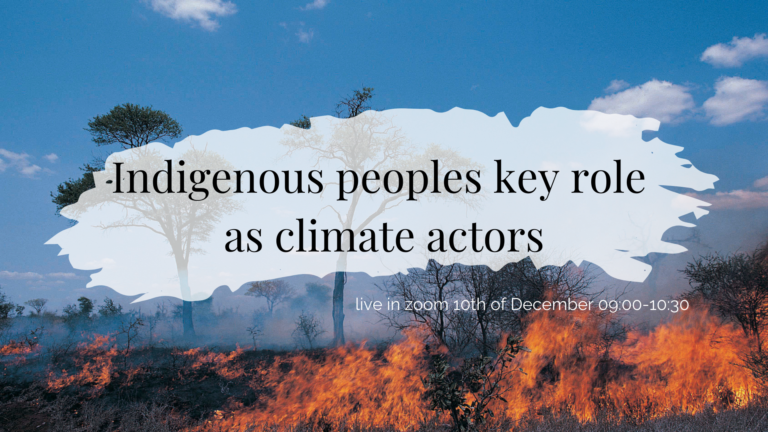Climate change is one of the major challenges that needs to be tackled in this decade of action to deliver the Sustainable Development Goals. Due to their close connection to the natural world and their reduced social-ecological resilience, Indigenous peoples are among the first to face the direct and indirect impacts of climate change. Yet they contribute the least to climate degradation. Climate change poses threats to Indigenous communities and their way of life worldwide, and intensifies existing difficulties such as marginalisation and violations.
Indigenous peoples’ close connection to the natural world makes them the main knowledge-holders of the world’s remaining ecosystems, and as such they could play a significant role in maintaining these systems and mitigate climate change. It is thus important to recognise and include the knowledge and experiences of Indigenous peoples within national and international policymaking, as they can play a key role in combating climate change.
Seen as important agents of change and essential to find effective solutions, this online seminar opens up for a discussion centred around the following questions:
What impacts does climate change have on the Sámi and Aboriginal people?
How does their traditional knowledge and practices preserve nature?
In what ways can Indigenous knowledge be used in local, national, and international decision-making?
We have invited two speakers representing the Sámi and Aboriginal community to engage in an interesting discussion on their challenges, applied knowledge on climate change, and potential ways forward.
Victor Steffensen is an Indigenous Australian of the Tagalaka people of Northern Queensland. He is the co-founder and lead Fire Practitioner for Firesticks Alliance, an Aboriginal led organisation which aims to revive traditional knowledge values. In addition to his work in Australia, Victor has also connected with Indigenous communities internationally through sharing cultural knowledge and practices for caring for Country.
Nils Ándá Baer is a reindeer herder from Jokkmokk, Sweden, and is active in the Sámi national youth organisation, Sáminuorra. The Sámi culture and language are a part of Nils Ándá’s everyday life, which has led to his interest and passion to ensure that Sápmi survives, by imbuing it into his work. Through this Nils Ándá hopes not only that the Sámi community becomes stronger, but also that the rest of society understands the Sámi people.
The webinar is moderated by FUF’s event-group in Stockholm. You need to register before the 9th of December to get the link for the participation. The webinar will be held on Zoom in English.





